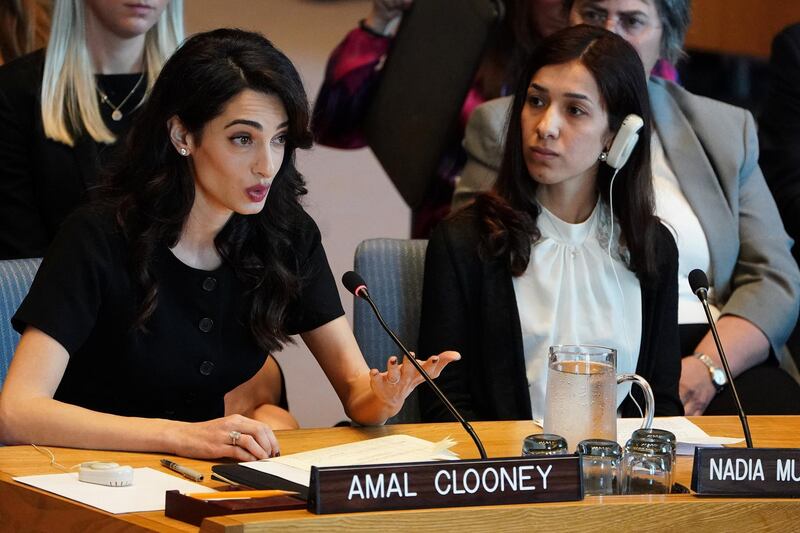In a conflict zone, women are often vulnerable and in the first line of attack – whether they are raped, kidnapped, enslaved or tortured. The shocking experiences of the Yazidi women in Iraq at the hands of ISIS, in Sierra Leone and in Bosnia have been well-documented, to name just a few examples.
In the light of those horrors, a firm and robust stance against rape in war ought to be a given. However, when Resolution 2467 denouncing the use of rape as a weapon of war came before the United Nations Security Council this week, the US threatened to veto it, adamant that references to “sexual or reproductive health” were cyphers for abortion.
Following fierce negotiations and entreaties from Yazidi Nobel Peace Prize laureate Nadia Murad, the council passed a heavily diluted resolution, while China and Russia abstained. Britain and Belgium expressed disbelief at the Trump administration’s uncompromising stance. The French ambassador to the UN, Francois Delattre, accused Washington of “going against 25 years of gains for women’s rights in situations of armed conflict”.
The watered-down version has some limited value. For the first time, it calls for greater support for children conceived during rape and their often-stigmatised mothers. It also gives rare prominence to male victims. However, this document is a shadow of the original and a sad indictment of our international system, used by powerful nations to stymie progress.
In the words of Ms Murad, herself a former ISIS sex slave: “We give speeches at the UN but no real measures have been taken and nothing has been done.” Does it not matter that the world is experiencing, in her words, “an epidemic of sexual violence”? Resolution 2467 also provides a window into the priorities of US President Donald Trump, whose administration seems willing to disregard the most vulnerable to appease its core supporters.
Perhaps the original document would have had little effect in practice, had it passed. But that is not really the point. This will go down as another failure of the international community – one that is as dispiriting as it is cynical.





